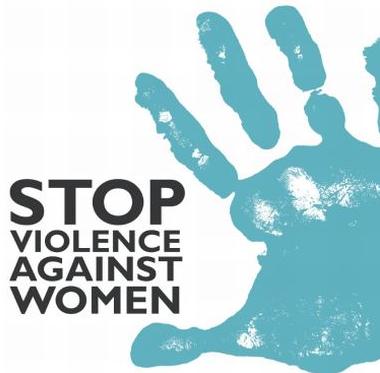Is there hope for the International Violence Against Women Act

By MARSHA WALLACE
DFW Co-Founder
DFW recognizes that our mission of making a meaningful difference in the lives of women living in extreme poverty cannot be separate from our commitment to promote gender equality.
This is reflected in our recently revised vision statement: “We envision a world in which millions of lives have been transformed and extreme poverty has been reduced because Dining for Women has connected people in creative, powerful ways that assure gender equality. “
One of the most prevalent symptoms of gender inequality is gender-based violence. As Nicholas Kristof and Sheryl WuDunn explained in the introduction to their book, Half the Sky, more women have been killed just because they are women than all the men killed in all the world wars of the 20th century combined.
Harmful practices like sex-selective abortion, female infanticide, suicide, honor killings, bride burnings, and rape are all components of gender-based violence. Estimates are that up to one in three women will be a victim of gender violence at some point, and in some countries, as many as 70 percent of women are victims. Gender-based violence, one of the most egregious of human rights violations, is a public health crisis and a barrier to some of the world’s greatest challenges: eradication of HIV and AIDS, extreme poverty and political stability in some of the world’s most conflict- ridden countries.
Last November, Rep. Jan Schakowsky (D-IL) re-introduced the International Violence Against Women Act (I-VAWA), with largely Democratic support.
Key provisions of the act are:
- I-VAWA will direct the U.S. government to implement its strategy to reduce violence against women and girls in at least five countries where it is severe.
- The I-VAWA focuses on establishing and supporting laws and legal structures that help prevent and appropriately respond to all forms of violence against women and girls, including domestic violence, rape, physical abuse, ‘honor killings,’ and child or forced marriage.
- The I-VAWA will integrate programs to address violence against women and girls into already existing health programs focused on child survival, women’s health, and HIV/AIDS prevention, care, and treatment.
- I-VAWA calls for supporting overseas non-governmental and community-based organizations working to end violence against women and girls.
- I-VAWA will require that uniform data collection and accountability measures are in place to track investments in programs that address gender-based violence.
- I-VAWA permanently authorizes the Office of Global Women’s Issues in the State Department as well as the position of the Ambassador-at-Large for Global Women’s Issues.
This legislation has traveled a rocky road since 2007 when it was first introduced in the Senate by then-Sen. Joe Biden. It is encouraging that legislators do keep taking up the cause. But with each new effort, fewer and fewer sign on as co-sponsors – a critical step necessary for the bill to move forward. The bill was introduced in 2010 with 134 House sponsors, reintroduced in 2011 with 55 House sponsors and revived again just last November, but with only 34 House sponsors.
As other versions before it, HR 3571 been assigned to the House Foreign Affairs Committee, where it waits. At this time, according to Rep. Schakowsky’s office, no hearings are scheduled and no action is likely.
I am excited about the reintroduction of I-VAWA, but the road to passage – or even a vote – is a difficult one.
What can we do?
- Learn about the bill. You can read the bill, see co-sponsors, compare previous versions and track its progress at govtrack.us.
- Encourage your congressional representative to become a co-sponsor of the bill.
- Women Thrive Worldwide has a great link on its website that makes it easy send an email of support to your local representative.
- Learn about the effects of gender-based violence.
- Talk with friends and family and on social media about I-VAWA and how vital its passing is to the vision of the future we are working for: global communities that demonstrably value and invest in women by providing education, healthcare, economic opportunities; societies in which women and girls are treated with the dignity and respect every human being deserves; where women are physically and emotionally safe and secure.
A world that values women is a safer, more peaceful and prosperous world for us all. It will take all of us spreading the word and working together to help make that vision a reality
For more information:
- http://www.thedailybeast.com/witw/articles/2013/11/21/congress-to-vote-on-international-violence-against-women-act.html
- http://www.futureswithoutviolence.org/section/ivawa
- http://www.capwiz.com/womenthrive/issues/bills/?bill=19818541
- http://www.futureswithoutviolence.org/userfiles/file/PublicCommunications/IVAWA Summary.pdf
